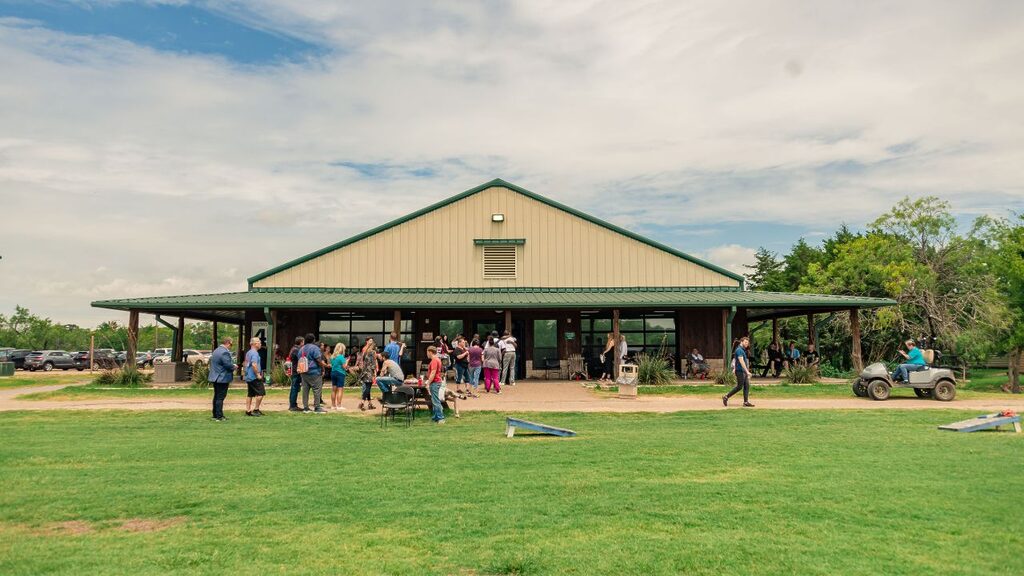Trauma heightens the brain’s alarm system and keeps the body on watch even when nothing dangerous is happening. The Hill Country changes that baseline by reducing constant stressors. Fewer sirens, softer light, and open space make it easier to settle your breathing and notice your thoughts without feeling chased by them. That quieter backdrop does not replace therapy. It lets therapy work faster because your nervous system is not burning energy on vigilance.
What Does Trauma-Informed Care Look Like Day To Day In Residential Treatment?
Trauma informed care starts with predictability and choice. You know what the day looks like before it begins and you control the pace of disclosure. Clinicians explain why each exercise matters so you never feel pushed through a process you do not understand. Safety arrives first. Regulation follows. Once you can sleep through the night and wake without a jolt, cognitive work becomes possible. Sessions build from grounding skills to targeted therapies so you integrate changes instead of bracing against them.

Why Do Nature And Routine Help The Nervous System Reset?
Nervous systems learn through repetition. When mornings begin at the same time, when meals arrive on schedule, and when evenings wind down the same way, the body learns that nothing catastrophic is coming. Nature reinforces that lesson. Walking a quiet path or sitting under big sky reduces sensory load and invites longer exhales, which tells the brain it can stand down. That biological feedback loop gives you attention and memory back, and those two functions are the engines of real change.
How Do You Turn Calm Days Into Skills That Survive Back Home?
Calm is valuable only if it travels. Good programs teach skills in the same settings where stress appears. You rehearse grounding while you move, not only while you sit. You map how a difficult thought becomes a difficult action and you insert two or three small moves that break the chain. You practice conversations that usually explode and you keep adjusting the script until it works at normal volume. By the time you leave, your plan does not live on paper. It lives in muscle memory.
How Should Families Participate Without Reigniting Conflict?
Families often try to help in ways that raise the temperature. Trauma informed family work lowers it by setting goals everyone can name and by limiting the number of topics in each conversation. Sessions emphasize skills the home can actually use, like how to start a hard talk, how to take a timed pause, and how to return without restarting the fight. When the family understands the treatment plan and agrees on a few simple boundaries, discharge feels coordinated instead of fragile.

What Prepares You To Bring The Hill Country Home To The City?
You will not bring the landscape home, but you can bring its qualities. Before discharge you identify two or three local places that feel quiet enough to reset. You put aftercare on the calendar rather than hoping time appears. You keep the sleep window you practiced and you protect it from the first night. You carry a few portable tools such as a breath count, a grounding phrase, and a short walk that you can take without planning. The point is not perfection. The point is a routine that makes relapse less convenient than recovery.
What Changes When You Choose A Texas Program Built Around Safety?
Energy returns as sleep evens out. Anxiety narrows from a constant hum to specific moments you can name and manage. Triggers become predictable events with rehearsed responses rather than surprises that take over the day. Therapy stops feeling like storytelling and starts feeling like training. The combination of environment, structure, and skill practice produces more progress per hour, which is exactly what you want from residential care.
Ready To Start In The Hill Country With Texas Recovery Centers?
If this approach fits what you need, take the next step today. Call us to verify insurance, check current availability, and speak with an admissions specialist who can align your start date with work and family schedules. Begin in a setting that makes healing more likely and carry that momentum home.













